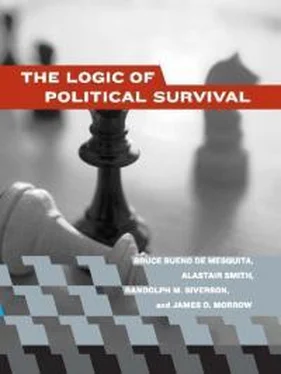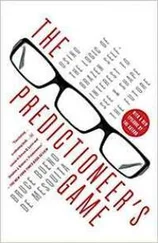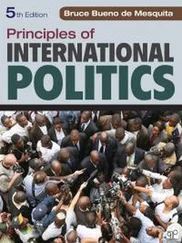Why Focus on Political Survival?
This book investigates comparative domestic politics, economics, and foreign affairs as well as the interplay among them. Naturally, in covering so much territory, we necessarily leave out much of the important detail of daily political life. Our objective is to set out and test a basic theory with the hope that it will be elaborated in the future, filling in the details that for now are absent.
We discuss several vital problems in politics and how they are tied to the quest for political survival. For instance, it will be seen that the policies and programs necessary to ward off domestic and foreign threats to a leader’s survival vary dramatically under different institutional arrangements. Sometimes policies and programs that promote general welfare also trigger the deposition of leaders by political rivals. Sometimes it is impossible for leaders to simultaneously satisfy critical domestic constituents and advance social well-being. In such cases, politicians must gamble on how far they can go in distorting the national economy for the benefit of a small group of cronies. If they choose incorrectly—either providing too much social welfare or not enough—they face defeat.
Our main subject of investigation is selection institutions and their effect on domestic and foreign affairs. Why, then, do we place so much emphasis on political survival rather than just addressing institutions? The answer is simple: different circumstances influence the choice of political-selection institutions, but in each case we believe that such choices are motivated by the interest politicians have in holding onto office.
Since the earliest polities, leaders have worried about their hold on power. In ancient Assyria, Ashurbanipal had been named crown prince by his father, King Esarhaddon, making him coregent and future king. Although he received the oath of loyalty from the nobles, still he worried about his security:
Is danger to be anticipated from the bearded chiefs, the King’s Companions, his own brother and the brothers of his father, the members of the royal family? He doubts the loyalty of his charioteer and of his chariot attendant, of the night-watch, of his royal messengers and of his body-guard, of the officers in the palace and those on the frontier, of his cellarer and baker. He fears for what he eats and what he drinks, he fears by day and by night; in the city and without, there is danger that a revolt against him will be undertaken. (Olmstead [1923] 1975, 396)
Ashurbanipal was skilled at discerning and thwarting the multitude of threats to his power; he ruled Assyria as king for forty-one years (668-627 BC).
This belief in the desire to hold power leads us to theorize about the interdependence between institutions of governance and questions related to political survival, a topic that has received limited attention in the literature on political institutions. A brief outline of how we think about these relationships may be helpful.
All Incumbents Have Rivals
The competition for political office has always been fierce. In modern democracies, the battle for the highest of offices is frequently punctuated by vicious personal attacks, by acrimonious charges of personal corruption, indecency, and incompetence. As Franklin Roosevelt and Richard Nixon learned, the attacks may even extend to questions about their pet dogs. No democracy, however, ever lacks people eager to be candidates for office.
Even more puzzling is the surfeit of candidates for the highest offices in autocracies and monarchies. In these political systems, defeat often has meant imprisonment and even death. When King Richard I of England died on April 6, 1199, for instance, he left vague the succession to the crown. Like the Holy Roman emperor and so many other medieval monarchs, the English king was elected, a tradition that was still strong at the time of Richard’s death (Painter 1949). To be sure, the great barons tended to follow feudal hereditary customs, but they were not above deviating from those norms. How else can we explain the competing, simultaneous elections of Canute (by the witenagemot—an assembly of thanes or nobles) and Edmund Ironside (by the citizens of London) as king of England, or the choice of Hugh Capet over Charles of Lower Lorraine in France?
English custom, like French custom, dictated that only one of noble birth could be king and hence hereditary claims imparted an advantage. But English custom, like French custom, also dictated that anticipated competence be taken into account in selecting among those who could be or would be king. The “magistrates,” in whom the right to choose eventually came to reside, had both the right to reject hereditary priority and subsequently to depose whomever they had chosen if the king proved wanting. In Northumbria shortly before the Norman Conquest, for instance, thirteen of fifteen elected kings were subsequently deposed (Taylor 1889, 109, 175-176, 215-217). In France in 987, Hugh Capet was elected over the hereditary heir to Charlemagne’s throne because, in the words of Archbishop Adalbero, “In him [Hugh Capet] you will find a defender, not only of the state, but also of your private interests” (“The Election of Hugh Capet,” ).
Two claimants were put forward on King Richard’s death. John Lackland was Richard’s only surviving brother and King Henry II’s only surviving son. Arthur, John’s (and Richard’s) nephew, was the surviving son of an older brother (Geoffrey) who died before their father, King Henry II. It might also be noted that Queen Eleanor, Henry II’s wife, was still alive and might herself have made a claim to the throne. She was the duchess of Aquitaine, representing a significant portion of the Angevin empire. She preferred to support John. In any event, Arthur and his backers were not reluctant to press his case although the risks were great. As (bad) luck would have it for Arthur, he lost. What was Arthur’s fate? After Arthur failed in attempting to raise a rebellion with French support, John had him taken prisoner and (probably) murdered, thereby protecting himself from a potential political rival. Arthur paid the ultimate price as part of John’s struggle for political survival. John ascended to the throne, but he did not free himself of political rivals. Years later, of course, he faced the famous barons’ revolt that led to the Magna Carta.
Arthur’s fate is hardly unusual. During the Safavid dynasty in Persia (1502-1736) it was a virtual custom for the successor to the throne to engage in the wholesale execution of brothers, sons, and other nobles who might represent rivals for the crown. Ismail II (1576-1578), Shah Abbas I (1588-1629), Shah Safi (1629-1641), and Shah Mahmud (1722-1725) were especially noteworthy for their penchant for killing prospective rivals among their own close relatives (Langer 1980, 565- 657). The excesses of the Safavids might strike us as ancient history. But we cannot forget that Lavrenty Beria, a contender to succeed Joseph Stalin, was executed shortly after Stalin’s death in 1953 or that General Sani Abacha in Nigeria in the late 1990s kept Moshood Abiola imprisoned rather than allow him to become president, an office to which he was duly elected. Abiola was eventually murdered while in prison. General Abacha himself also appears to have been murdered by political opponents. King Hassan of Morocco, who died in 1999, enjoyed a reputation as a progressive Muslim monarch, yet he is reputed to have had his political rivals flown out to sea in helicopters and dumped overboard. Saddam Hussein in Iraq is alleged to have personally shot members of his own cabinet when they questioned his policies. The list hardly needs further enumeration to make the point. Political succession is a risky business, yet there is no shortage of people willing to take even life-and-death risks in seeking high office.
Читать дальше












